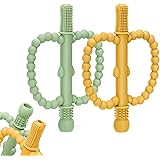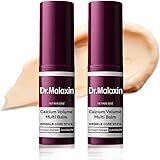Are you wondering how your diet during pregnancy impacts your baby’s remarkable journey of growth and development? It is a common concern for expectant mothers to provide the best possible start for their little ones, especially regarding cognitive function. As highlighted by Dr. Deepthi Jammi in the video above, the foods consumed by a mother can significantly enhance a baby’s brain development while in the womb. This crucial period, known as the first 1,000 days, sets the foundation for lifelong health and intelligence.
The intricate process of brain formation begins early in pregnancy. Key nutrients are required to support the rapid growth of neural tissues, connections, and overall structure. Therefore, prioritizing a nutrient-rich diet becomes paramount for ensuring optimal baby’s brain development during pregnancy. While genetics play a role, maternal nutrition is considered a modifiable factor that can have a profound impact on cognitive outcomes.
Essential Nutrients for Baby’s Brain Development During Pregnancy
Various essential nutrients are involved in the complex symphony of fetal brain development. Each plays a distinct yet interconnected role, contributing to different aspects of neural formation and function. Understanding these key players can help expectant mothers make informed dietary choices.
Folic Acid: A Cornerstone of Neural Development
Folic acid, or folate, is often emphasized as one of the most critical nutrients for early pregnancy. Its importance cannot be overstated. This B vitamin is vital for the development of the neural tube, which eventually forms the baby’s brain and spinal cord. Adequate intake is known to significantly reduce the risk of major birth defects like spina bifida and anencephaly.
While supplementation, as prescribed by doctors, is typically recommended to ensure sufficient levels, natural sources should also be prioritized. Leafy green vegetables, legumes, and fortified cereals are excellent dietary sources of folate. The body requires consistent access to this nutrient, especially during the first trimester, when neural tube closure takes place.
Leafy Greens and Spinach: Powerhouses of Folate and More
As Dr. Jammi mentions, spinach and other varieties of greens are highly beneficial. These vibrant vegetables are not just rich in folate but also provide a spectrum of other brain-supporting nutrients. Iron, for instance, is crucial for oxygen transport to the developing brain, preventing issues related to anemia. Additionally, Vitamin K and antioxidants found in greens support overall cellular health and protect delicate brain tissues from oxidative stress.
Incorporating spinach into your prenatal nutrition plan can be done in numerous delicious ways. It can be added to smoothies, curries, salads, or lightly sautéed as a side dish. The versatility of these greens makes them an easy and impactful addition to a pregnancy diet focused on baby’s brain development.
Bananas and Other Fruits: Nature’s Sweet Boosters
Bananas are highlighted in the video as a beneficial food. These accessible fruits are packed with Vitamin B6, which is important for neurotransmitter synthesis—the chemical messengers of the brain. They also provide potassium, an electrolyte vital for nerve function. However, the benefits extend beyond just bananas; a wide array of fruits offers diverse advantages for prenatal brain health.
Berries, for example, are rich in antioxidants and flavonoids, which have neuroprotective properties. Oranges and other citrus fruits provide Vitamin C, essential for collagen formation and supporting the baby’s developing blood vessels. Regular consumption of a variety of fruits helps ensure a steady supply of vitamins, minerals, and antioxidants, all contributing to the optimal development of the fetal brain.
Nuts, Seeds, and Dry Fruits: Essential Fatty Acids and Micronutrients
The inclusion of nuts, seeds, and dry fruits in your diet is a strategic move for enhancing baby’s brain development during pregnancy. These compact powerhouses are rich in healthy fats, particularly omega-3 fatty acids, which are critical for the formation of brain cell membranes and neural pathways. Walnuts, flaxseeds, and chia seeds are especially noted for their alpha-linolenic acid (ALA) content, a plant-based omega-3.
Beyond omega-3s, nuts and seeds provide Vitamin E, an antioxidant that protects brain cells, and zinc, which plays a role in cognitive function and memory. Almonds, cashews, and peanuts offer various B vitamins and minerals that support cellular energy production, vital for rapid brain growth. Dry fruits like apricots and dates, while consumed in moderation due to sugar content, can offer iron and other trace minerals. These can be easily incorporated as snacks or added to cereals and yogurts.
Whole Grains: Sustained Energy for Growing Brains
Whole grains are an important component of a prenatal diet, providing sustained energy for both the mother and the developing baby. Unlike refined grains, whole grains retain their bran, germ, and endosperm, which means they are rich in fiber, B vitamins, and iron. These nutrients are crucial for cognitive development.
Complex carbohydrates found in whole grains, such as oats, brown rice, and whole wheat bread, provide a steady release of glucose. This ensures a consistent supply of energy to the fetal brain, which requires a significant amount of glucose for its rapid growth. The B vitamins, particularly thiamine and niacin, are vital for metabolic processes in brain cells. A daily intake of diverse whole grains supports not just brain development but also overall maternal health.
DHA: The Ultimate Brain Booster
Dr. Jammi specifically mentions that a diet rich in fruits, vegetables, whole grains, and nuts will enhance DHA, which directly improves the brain development of the baby. Docosahexaenoic acid (DHA) is an omega-3 fatty acid that is a major structural component of the brain and retina. It accumulates rapidly in the fetal brain during the third trimester and the first two years of life.
While the foods mentioned contribute to the body’s ability to synthesize some DHA from ALA, direct consumption of DHA-rich foods is highly beneficial. Fatty fish like salmon, mackerel, and sardines are primary sources. For those who do not consume fish, algae-based DHA supplements are an alternative. Adequate DHA intake has been linked to better cognitive function, visual acuity, and overall neurological development in infants. Therefore, ensuring sufficient DHA is a critical aspect of promoting baby’s brain development during pregnancy.
Ask Dr. Jammi: Fuelling Future Minds
Why is my diet important for my baby’s brain development during pregnancy?
Your diet during pregnancy significantly influences your baby’s brain development, helping to build a strong foundation for their lifelong health and intelligence. Key nutrients support the rapid growth of neural tissues and connections while in the womb.
What is folic acid and why is it important for my baby’s brain?
Folic acid, also known as folate, is a crucial B vitamin that helps develop your baby’s neural tube, which forms their brain and spinal cord. Adequate intake is known to reduce the risk of major birth defects.
What kinds of foods are good for my baby’s brain during pregnancy?
Foods such as leafy green vegetables, bananas, nuts, seeds, whole grains, and fatty fish (or DHA supplements) are highly beneficial. These foods provide essential vitamins, minerals, and fatty acids needed for optimal brain growth and function.
What is DHA and why is it important for my baby’s brain?
DHA (Docosahexaenoic acid) is an omega-3 fatty acid that is a major structural component of your baby’s brain and retina. It rapidly accumulates during the third trimester, supporting cognitive function and visual development.











